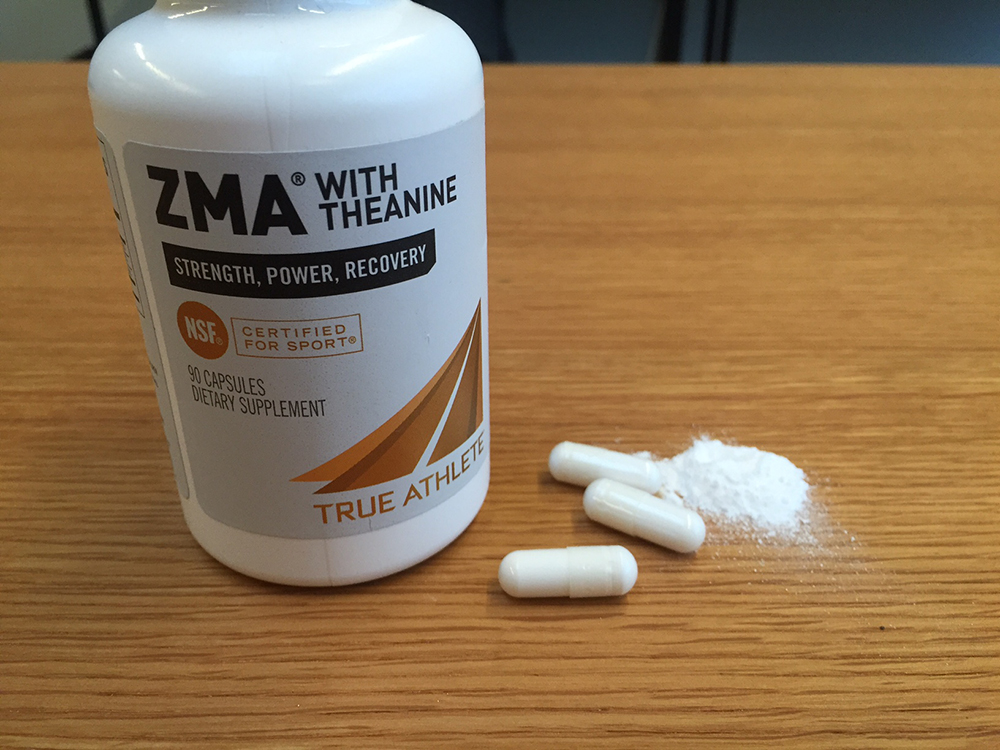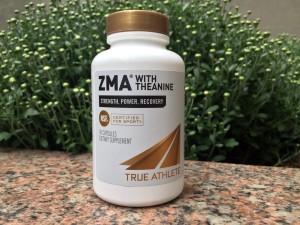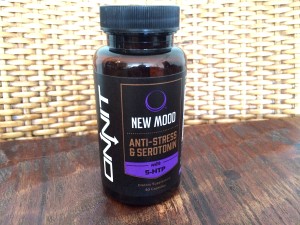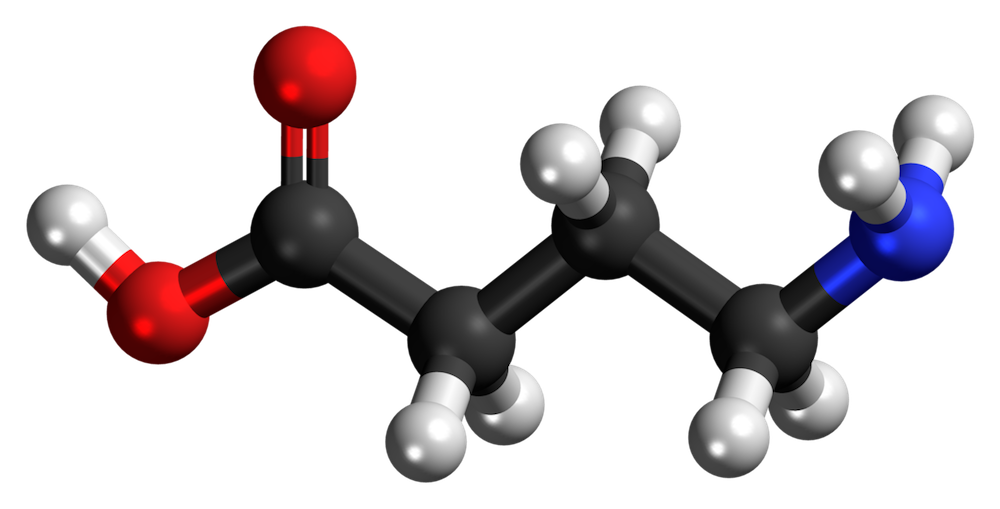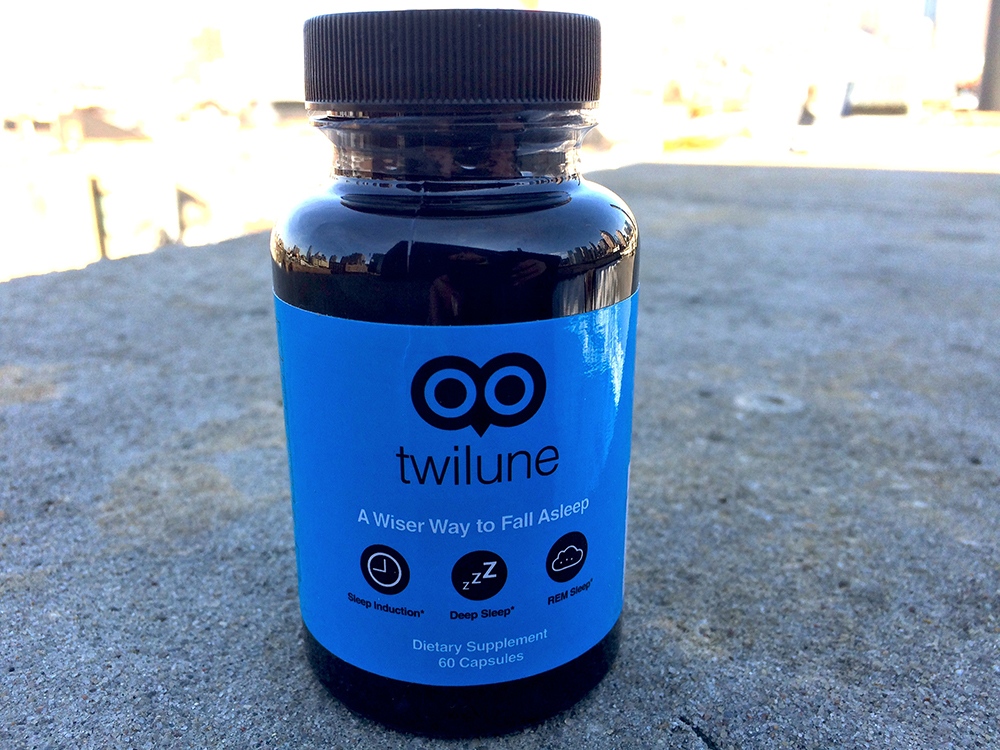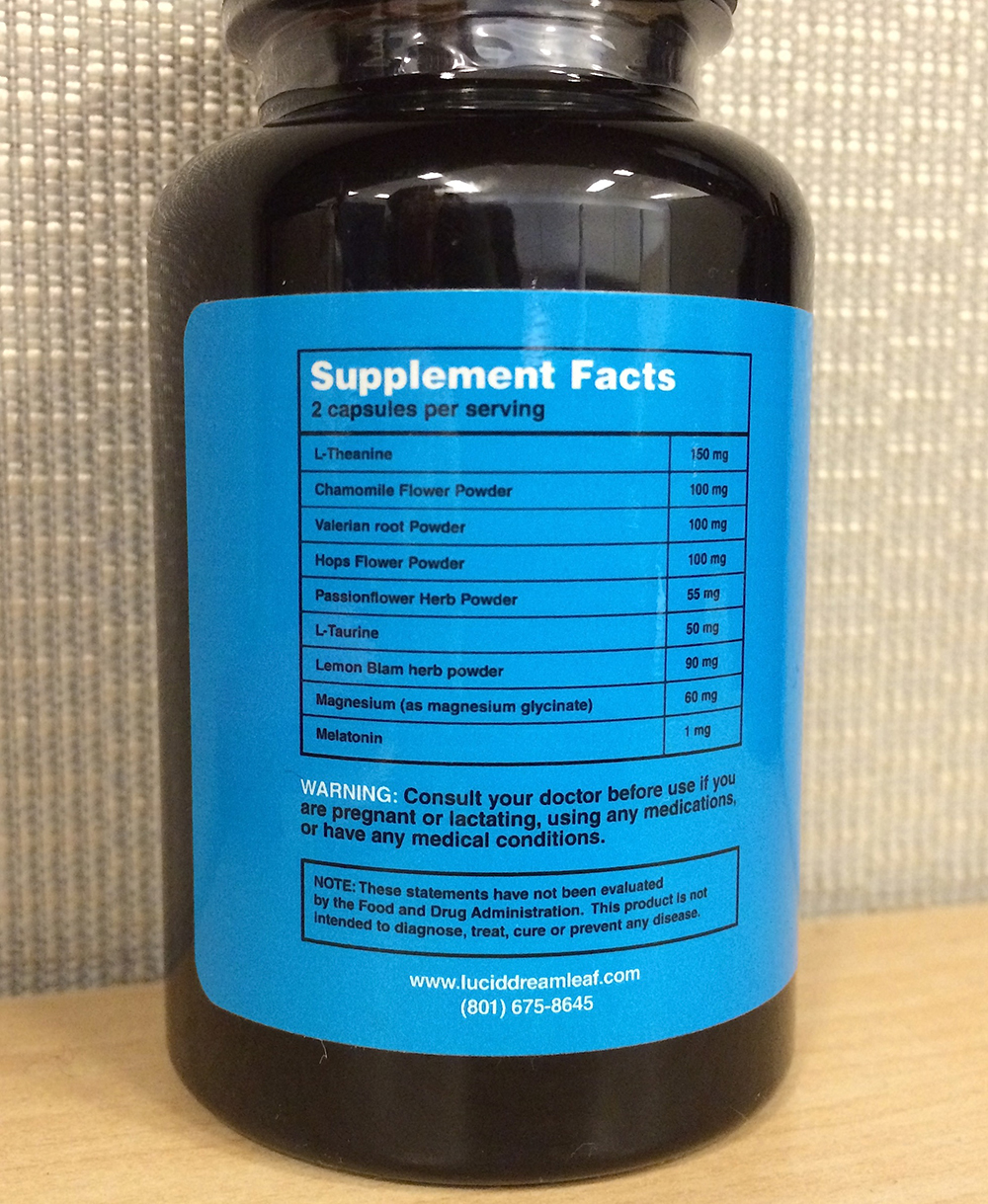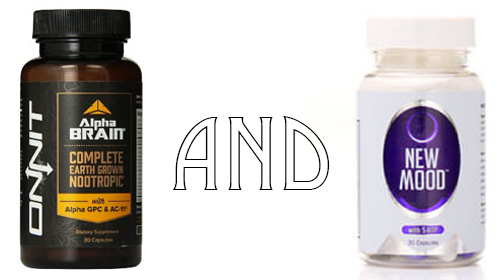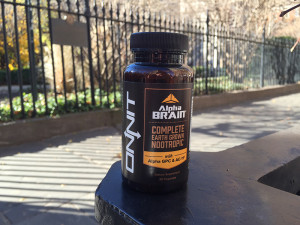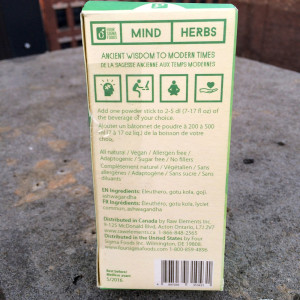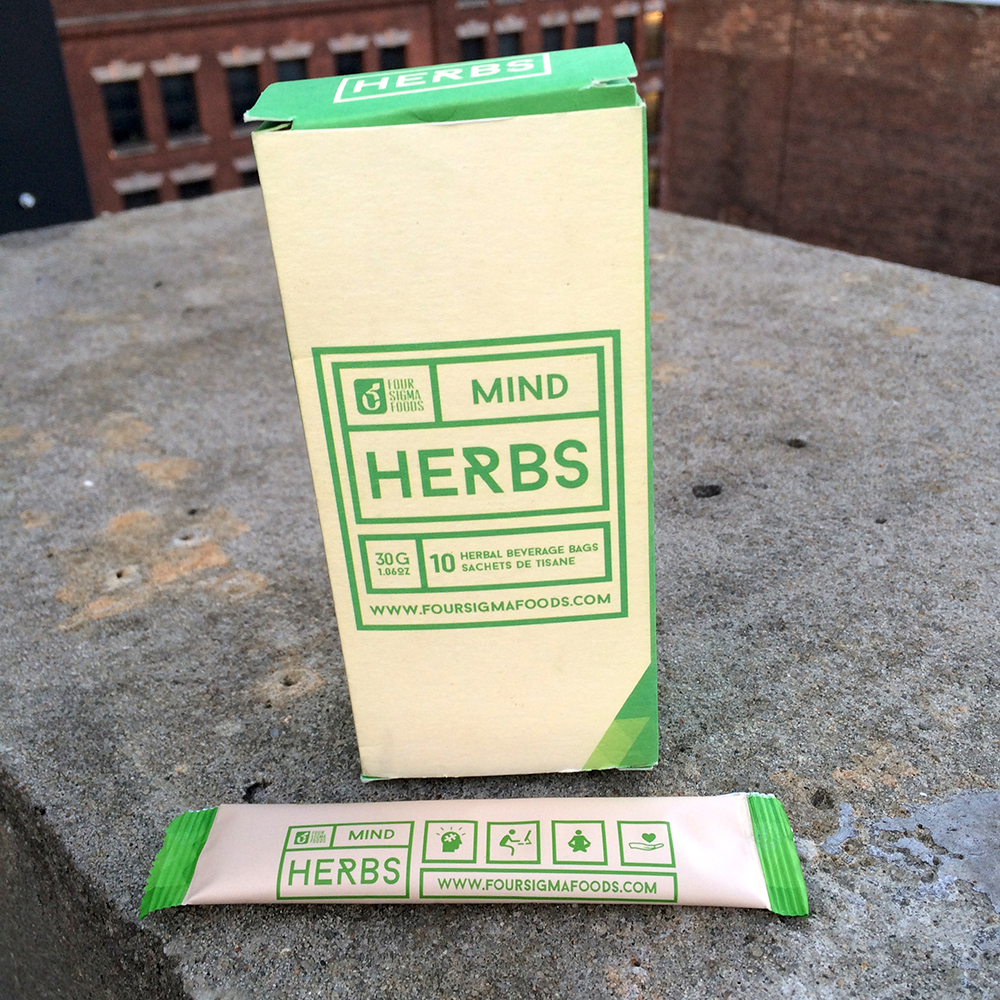As someone drawn to natural supplements — and the occasional herbal remedy — it was only a matter of time before I tried an Ayurvedic supplement to help me sleep. Ayurveda is a traditional Indian medicine philosophy, has been around for thousands of years, and is known as one of the oldest systems of natural healing.
Maharishi Ayurveda is a company that specializes in Ayurvedic supplements. Blissful Sleep is their best-selling sleep aid, claiming to induce deep sleep, with no side effects and no fog in the morning. Of course, I take everything with a big dose of skepticism before I try it. Read on to see how I slept while taking this herbal-based supplement.
Stated Use
Blissful Sleep Basic has 17 carefully chosen ingredients, including Rose, Indian Valerian, Ashwagandha and Pearl, that work synergistically to support wholesome, natural sleep.
Take 1-2 tablets at bedtime with warm water or milk.
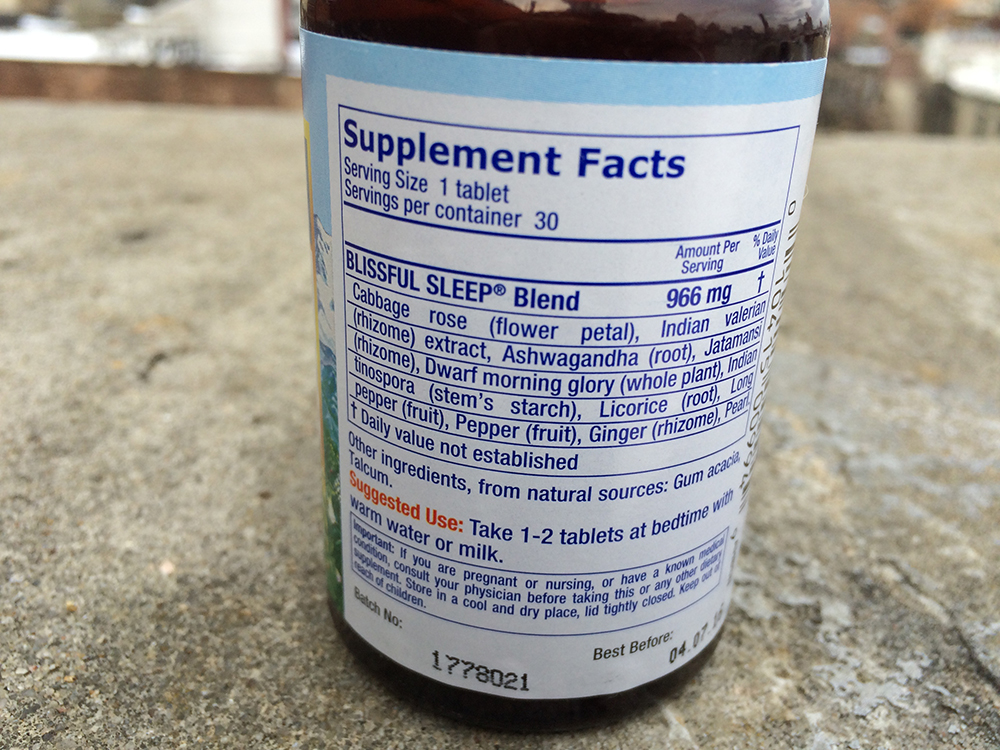
Active Ingredients
This supplement contains a number of ayurvedic ingredients.
Blissful Sleep® Blend – 966 mg
- Cabbage Rose (flower petal) — The rose is used in Ayurveda as a remedy for a number of ailments, including hormone imbalances, emotional imbalances, and sleep disturbances. There is also evidence of analgesic and anticonvulsant properties.
- Indian valerian (rhizome) extract — This fragrant herb has been historically used as a sedative and pain reliever and prescribed by ancient Greek physicians as a treatment for insomnia.
- Ashwagandha (root) — The extract of this plant’s roots have been used in Ayurveda, as a mood stabilizer, and to combat stress and anxiety. The extract is said to work as a nervous system depressant, bringing about tranquility and relaxation, and making it easier to fall asleep.
- Jatamansi (rhizome) — A calming herb, Jatamansi is used in Ayurveda to treat primary insomnia.
- Dwarf morning glory (whole plant) — Called Shankhpushpi in Ayurveda, this compound acts on the Central Nervous System and has been linked to boosted memory.
- Indian tinospora ( stem’s starch) — Used in Ayurveda to treat a number of ailments, including diabetes, upset stomach, and hay fever, tinospora is being studied for its immunostimulatory properties.
- Licorice (root) — This root has been used in folk medicine to treat digestive system issues, sore throat, bronchitis, and cough.
- Pearl — A traditional source of calcium in Ayurvedic medicine.
- Long pepper (fruit), Pepper (fruit), Ginger (rhizome) — The combination of ginger and pepper, which may help the body absorb nutrients through the digestive system.
Other ingredients from natural sources: gum acacia, talcum.
My Experience
Following the directions on the bottle, I took one capsule before bedtime. The bottle suggests drinking it with warm water or milk, but given my aversion to warm liquids — I drink my coffee cold through the New York Winter — I had it with a glass of cold water instead.
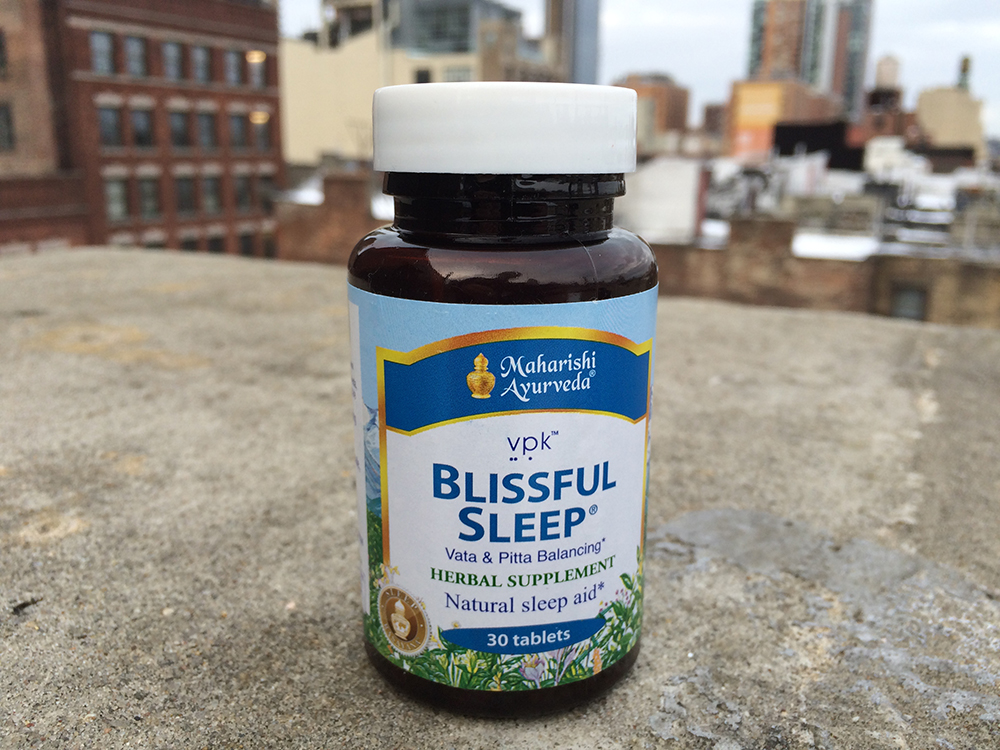
The smell was amazing, very herbaceous, and it definitely got me into my sleepy time mode (seriously, just the smell). I felt very relaxed within 20 minutes of taking it, and fell asleep easier than usual. I did wake up a couple of times during the night, but was able to fall back asleep relatively quickly. The following two nights, I took two capsules before bedtime, fell asleep quickly, and stayed asleep throughout the night. Both my sleep trackers indicated a 98-99% sleep quality night on both nights. I woke up before the alarm, feeling refreshed and very centered.
Pros:
- Smells delicious (similar to Sleep Blend SP-17)
- Very gentle
- Deep sleep with little grogginess or fog in the morning
Cons:
- Needed two pills to feel the effects
- Contains calcium from pearls, so it may not be suitable for those with a shellfish allergy
- Not the strongest sleep supplement I’ve tried, but overall I was a fan
- No lasting sense of calm (like Serotonin Brain Food), but it’s not really marketed as such
The Final Word
While at first glance this pill may seem mild, Blissful Sleep is one of the more effective, “all-natural” or herbal supplements I’ve tried in awhile. I will continue to take this on a regular basis, especially when I just need a little nudge to help me get to sleep and stay asleep. I will be trying this on my next trip as well to see if it helps me fight jet lag — I’m curious to see how it stacks up against my favorite jet lag-fighting supp.
If you are looking for something mild, and a little different than the other sleep aids out there, I would recommend giving this a try.
The post Ancient Herbal Remedy? Reviewing Blissful Sleep by Maharishi Ayurveda appeared first on Supplement Your Sleep.



